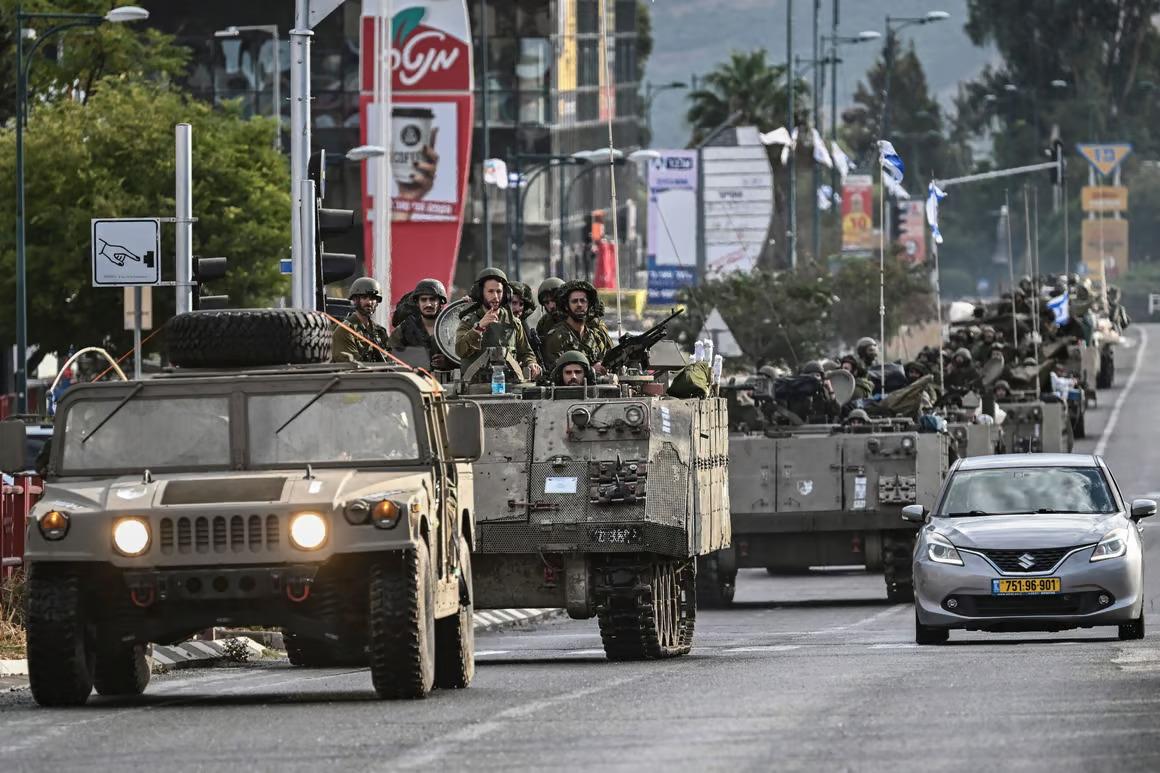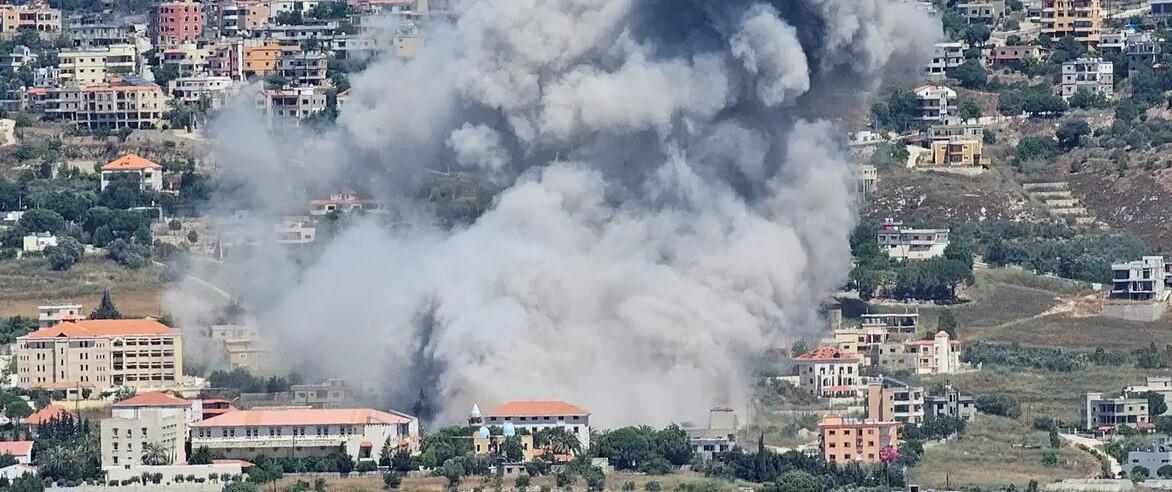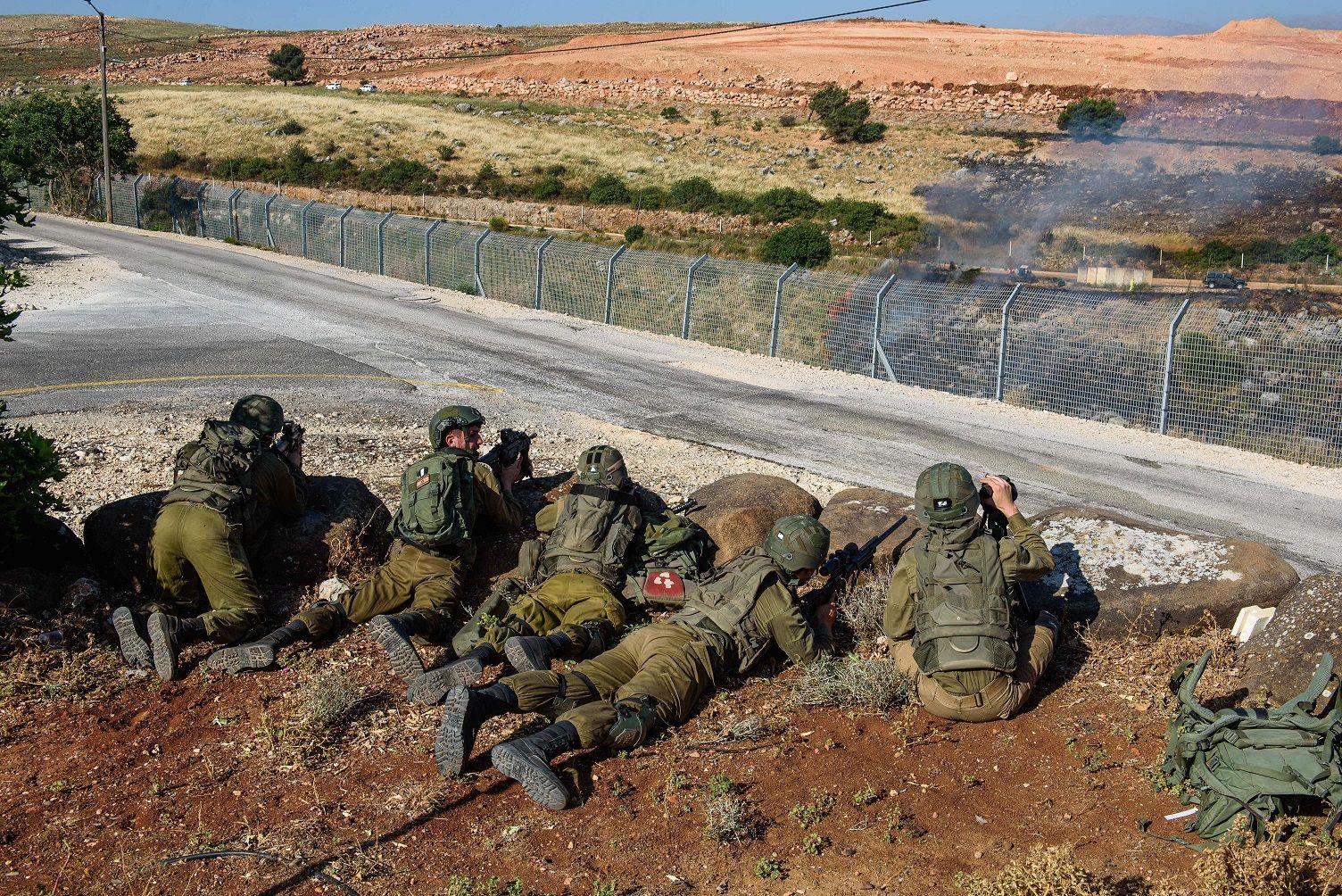Will Israel go for a full-scale war in Lebanon? Destroying red lines
In recent weeks, tensions in the Gaza Strip between Israel and Hamas have risen significantly, with the Israeli Defense Forces conducting deadly aerial raids against militant targets and critical infrastructure. While the international pressure on Israel over the long-term war in Gaza steadily mounts, official Tel Aviv hinted that the war may go beyond the Gaza wall, likely southern Lebanon, which is a safe haven for another well-known pro-Iranian proxy group, Hezbollah.
Since the outbreak of the war, Hezbollah has demonstrated support for Hamas and conducted frequent missile and rocket attacks on Israel's northern territories in solidarity with Hamas. Since then, tension between Hezbollah and Israel has only escalated, often leading to intense media speculation that full-on war between the two sides was imminent.
Hence, considering the grave impact of Hezbollah in Israel’s close vicinity amid the war, Israel is ready for an all-out war in Lebanon and has plans approved for an offensive targeting Hezbollah. Indeed, the reports regarding Israel’s mobilization of additional military personnel and amassing troops on the border areas with Lebanon triggered criticism from neighbouring countries such as Iran, Iraq, Türkiye, and Egypt, including some Western countries like France, the United States (US), and Germany. For example, Turkish President Recep Tayyip Erdogan accused the West of backing what he described as Israeli plans to attack Lebanon and "spread war" throughout the region.

While Berlin and Washington have cautioned against the consequences of the expansion of war, Ankara has pledged solidarity with Lebanon and called on other regional players to join in. Separately, the UN's most senior official in charge of humanitarian affairs also warned such an escalation could be apocalyptic. Although foreign countries made harsh statements on the potential military intervention in Lebanon, Israeli Defense Minister Yoav Gallant stated that Tel Aviv does not want war with Lebanon but is ready to inflict major damage if diplomatic efforts fail. Nevertheless, Prime Minister Benjamin Netanyahu stressed that the war in Gaza was entering a new, less intense phase, allowing the military to turn more attention to Lebanon.

Such a war could be the most destructive either side has ever experienced. Israel and Hezbollah each have lessons from their last war, in 2006, a monthlong conflict that ended in a draw. Israel has nearly nine months to prepare for another war, even as the United States tries to prevent a widening of the conflict that could spark a confrontation with Iran and endanger US forces in the region. Consequently, an Israel-Hezbollah war could be a catastrophe that goes far beyond the border and beyond imagination.
Since October 7 terror attacks on Israel and following the war in the Gaza Strip, more than 450 people, mostly fighters with Hezbollah and allied groups but also more than 80 civilians and non-combatants, have been killed on Lebanon's side, and 16 soldiers and 11 civilians on Israel's. On the Lebanese side, residents of Shia-majority towns like Kafr Kila, Adaisa, Aita Al-Shaab, and Aitaroun have almost all left. Frequent Israeli airstrikes and artillery barrages have reduced many of these communities to rubble.

Yet for many Israelis – fixated for more than eight months on the war with Hamas in Gaza and a traumatic hostage crisis – the prospect of war on an additional front elicits a blend of fatigue and resignation that conflict is perhaps inevitable. In light of the potential war scenarios, the Israeli army conducted a series of military drills on the Lebanese border for what the military called extreme scenarios, including combat in complex and mountainous terrain, activating fire, and urban warfare.
The US, especially with an election coming up in November, will not want to be dragged into supporting Israel in what would likely become a new Middle East quagmire. This explains why the US continues de-escalation talks with Israel and, indirectly, with Hezbollah. Despite the Biden administration's firm stance, Israel will likely move its troops into southern Lebanon in an effort to eliminate the Hezbollah threat from its borders.








